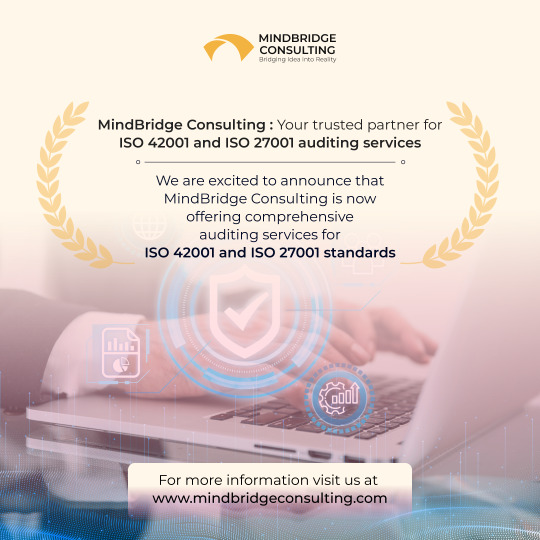#ISO 27001 audit
Explore tagged Tumblr posts
Text

🎉 Heartiest Congratulations to D Gukesh! 🎉
At just 18 years old, Indian chess prodigy D Gukesh has made history by clinching the World Chess Championship title, defeating Ding Liren in Singapore! 🏆♟️
Your incredible achievement inspires millions and showcases the brilliance of determination, strategy, and talent. 🌟
From all of us at QCertify Global, we celebrate your journey and this historic milestone. You have made India proud! 💪
👏 Bravo, Champion! 👏
#Dgukesh#WorldChessChampion#YoungAchiever#PrideOfIndia#QCertifyGlobal#Congratulations
#iso 9001#iso 45001#iso certification#iso certificate online#iso certified company#iso 27001 certification#iso certification bangalore#iso 27001 consultants#iso 27001 audit#iso 27001 training#chess#world chess championship#d gukesh
2 notes
·
View notes
Text
#ISO 27001 Certification#ISO 27001 Course#ISO 27001 Training#ISO 27001#iso 27001 audit#course#training#professional#online#iso 27001 consultants#iso 27001 compliance
2 notes
·
View notes
Text
Achieve Seamless ISO 27001 Audit Success with Axipro
In today’s digital age, safeguarding your organization’s information assets is more critical than ever. An ISO 27001 audit is a vital step toward demonstrating your commitment to top-notch information security management. At Axipro, we specialize in guiding businesses like yours through the entire ISO 27001 audit process, ensuring a smooth and stress-free experience.
Why Choose Axipro for Your ISO 27001 Audit?
Expertise You Can Trust Axipro’s team of seasoned ISO 27001 consultants has extensive experience in auditing and compliance. We tailor our approach to suit your business needs, ensuring every aspect of your Information Security Management System (ISMS) is fully prepared.
Streamlined Process Our proven methodologies simplify the complex requirements of ISO 27001. From initial assessments to final audit preparation, Axipro ensures you’re always one step ahead.
Cost-Effective Solutions We understand that every organization is unique. That’s why we offer customized, budget-friendly solutions that maximize value while minimizing disruptions.
Comprehensive Support Axipro provides end-to-end support, including gap analysis, risk assessments, documentation review, and employee training. Our goal is to make the ISO 27001 audit process not only successful but also insightful for your team.
Secure Your ISO 27001 Certification with Confidence
Partner with Axipro to demonstrate your organization’s commitment to information security and gain the trust of your stakeholders. With our expertise by your side, achieving ISO 27001 certification is no longer a daunting task—it’s an opportunity for growth and resilience.
Ready to ace your ISO 27001 audit? Contact Axipro today! Let’s make your information security stronger, together.
0 notes
Text
ISO 27001 Lead Auditor Certification
With GSDC Certified ISO 27001 Lead Auditor certification, you can validate your expertise in various critical areas, including the planning, executing, and reporting audits on organizations' Information Security Management Systems (ISMS). The primary objective of these audits is to assess the ISMS's effectiveness in safeguarding information confidentiality, integrity, and availability.

A Lead Auditor must possess a deep understanding of ISO 27001 and its requirements and the ability to apply audit techniques to evaluate whether an ISMS complies with the Standard. In addition, Lead Auditors are responsible for ensuring that audits are conducted per ISO 19011, the global standard for managing systems audits.
To attain the Certified ISO 27001 Lead Auditor status, individuals must complete an accredited training course and successfully pass the certification examination, ensuring they are equipped to conduct comprehensive audits and contribute to improving ISMSs within organizations. To learn more click here
#iso certification#iso 27001 certification#iso 27001 lead auditor training#iso 27001 training#iso 27001 audit#lead auditor
1 note
·
View note
Text
#ISO 27001 Certification#ISO 27001 Implementation#Requirements of ISO 27001#Training on IT Security Management System#ISO 27001 Consultant#ISO 27001 Audit#ISO 27001 Internal Auditor#ISO 27001 Training#ISO 27001 Consultancy
1 note
·
View note
Text
ISO 27001 Internal Auditor Training with 4C Consulting

In today’s digital age, data security is paramount for businesses of all sizes. The ISO 27001 standard is a globally recognized framework for information security management systems (ISMS). To maintain compliance and ensure robust data protection, organizations need qualified internal auditors who can effectively assess their ISMS. This is where ISO 27001 Internal Auditor Training comes in.
Why ISO 27001 Internal Auditor Training is Needed
ISO 27001 Internal Auditor Training is essential for organizations to ensure that their information security processes comply with the ISO 27001 standard. Trained internal auditors are equipped to identify risks, assess vulnerabilities, and ensure that the organization's data protection practices meet regulatory requirements.
Benefits of ISO 27001 Internal Auditor Training
This training provides auditors with a deep understanding of the ISO 27001 standard and equips them to conduct effective audits. Key benefits include:
Improved data security: Detect and rectify security gaps.
Compliance: Ensure alignment with regulatory standards.
Continuous improvement: Foster a culture of ongoing security enhancement.
How 4C Consulting Can Help
At 4C Consulting, we bring over 10,000 hours of ISO training experience and have implemented ISO standards for more than 2000 clients. Our expert consultants provide tailored ISO 27001 Internal Auditor Training, ensuring your team is well-equipped to manage information security risks and maintain compliance. Contact us now.
#iso 27001 certification#iso 27001 training#iso 27001 consultants#iso 27001 audit#iso 27001 compliance
0 notes
Text

Elevate your business's reputation and performance with expert ISO 42001 and ISO 27001 auditing services.
Our team of certified auditors can help you:
Achieve and maintain certification
Identify and address compliance gaps
Contact us today to learn more about how our services can benefit your organization.
0 notes
Text
What are the types of ISO 27001 Audits?
An ISO 27001 audit is a systematic review process that evaluates how well an organization's Information Security Management System (ISMS) aligns with the requirements of the ISO/IEC 27001 standard. Overall, these audits are crucial for organizations to maintain a strong ISMS and demonstrate their commitment to information security. ISO 27001 Audit is important because without confirming how your ISMS is managed and performed, there is no real assurance of confirmation that it is conveying against the targets it is set to satisfy. Audits go a workable approach to giving this confirmation. To ensure you’re ready, we'll cover all that you want to be aware of ISO 27001 audits, including the different types of audits. To know more about this please read our new blog content.
#iso 27001 audit#iso 27001 audit checklist#iso 27001 standard#ISO/IEC 27001 Audit#ISO 27001 Checklist
0 notes
Text
How to Obtain ISO Certification in Dubai

ISO certification signifies a company’s commitment to adhering to internationally recognized ISO management systems. An impartial entity endorses ISO certification in UAE, validating a company’s credibility and enhancing its competitiveness for contracts. This certification instills confidence in potential clients regarding the company’s reliability and quality of products or services. Governed by the International Organization for Standardization (ISO), certifications such as ISO 9001:2015 cover various industry sectors and aim to improve organizational efficiency and product/service quality. Rather than imposing burdensome procedures, ISO certifications offer a customizable framework to streamline operations and encourage continuous improvement, addressing aspects from product/service quality to data security reliability.
Importance of ISO Standards in UAE
ISO standards are crucial in UAE as they represent a company’s commitment to maintaining global standards of excellence. ISO certification in UAE enhances credibility and reputation in the competitive market while optimizing operations and ensuring consistent quality. These standards also assist in regulatory compliance and promote a culture of ongoing improvement. Additionally, ISO certifications facilitate international trade opportunities by aligning with global standards.
Common ISO Standards in the UAE
Some common ISO standards in the UAE include:
ISO 9001:2015: Sets criteria for quality management systems, emphasizing customer focus and continuous improvement.
ISO 14001:2015: Manages environmental responsibilities systematically, supporting sustainability efforts.
ISO 27001:2015: Establishes information security management systems for safeguarding information assets.
ISO 45001:2018: Ensures employee health and safety through occupational health and safety management systems.
ISO 13485:2016: Tailors quality management system requirements for medical device manufacturers.
ISO 22000: Safeguards food safety across the entire food chain, from producers to retailers.
Furthermore, ISO 22301 for business continuity, ISO 50001 for energy management, ISO 21001 for education, and ISO 17025 for testing labs also play vital roles in meeting industry needs in the UAE.
How to Obtain ISO Certification in UAE?
To apply for ISO Certification in UAE, follow these steps:
Conduct Gap Analysis:
Evaluate existing operations against ISO standards.
Engage with experienced consultants for objective evaluation.
Generate a comprehensive report outlining necessary actions.
Implementation:
Implement recommended modifications to bridge gaps.
Adapt processes, introduce new procedures, and educate team members.
Thoroughly document changes and monitor progress.
Certification:
Prepare for certification audit after successful implementation.
Choose a reputable ISO certification body for evaluation.
Resolve non-conformities identified during the audit.
Obtain an ISO certificate to enhance business credibility.
Popular ISO Certifications in the UAE:
ISO 9001 Certification:
Recognized in Sharjah, Abu Dhabi, Dubai, and other cities.
Ensures adherence to Quality Management Systems (QMS).
Enhances market presence by meeting customer expectations.
Compliance with ISO 9001:2015 instills best practices and boosts credibility.
ISO 14001 Certification:
Focuses on Environmental Management Systems (EMS).
Demonstrates commitment to environmental responsibility.
Leads to cost reductions and improved operational efficiency.
ISO 22000 Certification:
Essential for the food industry, ensuring food safety.
Updated to ISO 22000:2018 to harmonize global requirements.
Vital for controlling safety hazards in food products.
ISO 22301 Certification:
Provides a framework for Business Continuity Management Systems (BCMS).
Standardizes processes for business continuity.
Enables quick recovery from disruptions and safeguards against reputational harm and financial losses.
Here’s a plagiarism-free version of the text in an active voice tone:
Business Benefits of ISO Certification
Strategic Asset: ISO certification simplifies operations and enhances customer trust, positioning UAE businesses favorably in the international marketplace by adhering to rigorous ISO standards.
Increased Customer Confidence: Certification demonstrates dedication to quality and dependability, leading to heightened customer satisfaction and loyalty. ISO standards, like ISO 9001, prioritize customer requirements, fostering repeat patronage.
Increased Efficiency: ISO standards clarify processes and responsibilities, boosting employee performance and overall productivity. Continuous improvement principles promote regular refinement, potentially yielding operational cost savings and increased profitability.
Risk Mitigation: Adherence to ISO standards, such as ISO 31000 for risk management, enables proactive identification and mitigation of potential risks. This approach safeguards reputation ensures compliance with legal mandates, and prevents financial penalties and loss of clientele.
Elimination of Trade Barriers: ISO certification simplifies global expansion for UAE businesses by facilitating international trade. Globally recognized ISO standards ease entry into new markets, dismantle trade obstacles, and foster trust among potential partners and suppliers, enhancing opportunities for collaboration.
Accessing New Markets and Clients: ISO certification serves as a passport for businesses to expand globally. It assures potential clients of adherence to recognized standards, crucial for building trust abroad and meeting diverse regulatory requirements. In the UAE, ISO certification goes beyond compliance, fostering stakeholder trust, operational excellence, and market expansion. Embracing ISO as a strategic investment is essential for staying ahead in evolving landscapes.
With Private Wolf Business Setup:
ISO certification in the UAE transcends mere compliance, symbolizing an organization’s unwavering commitment to excellence and a gateway to global success. Cultivating a culture of continuous improvement, prioritizing customer satisfaction, and fostering efficiency are fundamental to this esteemed certification.
By navigating the ISO certification process diligently, your business can attain recognition for quality and become a catalyst for growth and industry leadership. Adopt the expedition towards ISO certification with confidence, knowing it positions your enterprise to excel in the competitive landscape of the Emirates and beyond, resonating trust with clients and partners alike.
M.Hussnain Private Wolf | facebook | Instagram | Twitter | Linkedin
#ISO Certificate#ISO Business Certificate#ISO Certification#ISO Certification in Dubai#iso 27001 audit#iso 9001#iso standard#Private Wolf
0 notes
Text
Breaking Down The ISO 27001 Audit Requirements For Beginners
ISO 27001 audit requirements go beyond just walking through organizationally specific processes and controls.
To successfully meet the stringent audit requirements of the standard, you have to thoroughly review its framework and the Annex A controls depending on your Statement of Applicability.
Then, you can move on to clause 9.2, which discusses the internal audit requirements of the standard.
Now, meeting these requirements can be challenging for two reasons: the prescriptive nature of the requirements and the required resources.
Although we can’t help with resources, we can assist you with comprehending the requirements.
So, let’s get started!

Breaking Down The ISO 27001 Audit Requirements
Clause 9.2 of ISO 27001 requires you to conduct internal audits at planned intervals to confirm whether your information security management system complies with the organization’s set requirements and the clauses of ISO 27001.
It also wants you to check whether you have effectively implemented and maintained the ISO 27001 information security management system.
Audit Program
The ISO 27001 audit requirements want you to plan, execute, implement, and maintain an audit program. The program should include rules on audit frequency, responsibilities, reporting, methods, and planning requirements.
To comply with the requirements, make sure you document the audit program, including
The timing and frequency of the internal audit functions,
Methods of conducting the internal audit,
Assignment of responsibilities,
Determining documentation requirements for performance, planning, and reporting the internal audits,
Remember to consider the significance of relevant processes and previous ISO 27001 audit results when recording the audit.
Audit Criteria And Scope
The information security management system standard wants you to define the criteria and scope of each audit. You shall take an in-depth look at your internal audit functions to document the specifics of each audit.
Considering the controls in your SOA, you may opt for a risk-based approach. It will allow you to review the controls and processes, reducing risks more frequently.
Ensure you keep documentation on the scope and criteria of each audit to prove that you have met the set objectives.
Auditor selection and independence
For an internal ISO 27001 audit, you must select auditors to ensure impartiality in the audit process. Your internal audit team should not audit functions they have control or ownership over. They should be completely impartial and unbiased.
Remember, inefficient internal audits are often the root of many nonconformities. Hence, it’s essential to choose an auditor who is skilled, competent, qualified, and knowledgeable about the system they are auditing and applicable regulations or requirements.
If you choose an auditor who has control over the department they are auditing, it will strike as a red flag to external ISO 27001 auditors.
Reporting on audit results
Once you have completed the ISO 27001 internal audit, you must report the audit results to relevant management. You shall communicate the audit results via management reviews.
The processes of your information security management system should mature and improve with time as you create, approve, and test the audit program.
Audit program and record retention
ISO 27001 requires you to retain and document information on the audit program and results for evidential purposes.
You should retain the audit planning documents and records gathered during the internal audit and maintain the results of the internal audit and the conclusion.
Final Thoughts
Now that you have grasped the ISO 27001 audit requirements, you can easily start the planning process. Be sure to pick a reliable and unbiased auditor and stay compliant during the audit. Also, check out the official ISO 27001 requirements to learn more about internal audits.
0 notes
Text

🎉✨ Happy New Year 2025! ✨🎉
As the clock strikes midnight, may your year be filled with:
💫 New opportunities,
🌟 Endless joy,
❤️ Unforgettable memories, and
💥 Big wins in every aspect of life!
Here’s to writing the next chapter of our lives with hope, love, and laughter. Let’s make 2025 a year to remember!
HappyNewYear2025 #NewBeginnings #CheersTo2025
#iso 45001#iso 9001#iso certification#iso certificate online#iso 27001 consultants#iso 27001 audit#iso 27001 training#new year 2025#iso certified company#new year#thanksgiving#celebration#holiday#holiday season#christmas day#iso 27001 certification#iso certification bangalore
0 notes
Text
#iso certificate online#iso 27001 audit#iso certification#iso standard#iso valorant#iso 9001#iso consulting services#iso 14001 certification#iso 14001 audit#iso 14001 internal auditor training#iso 14001 documents
0 notes
Text

1 note
·
View note
Text
#ISO 27001 Implementation#ISO 27001 Certification#ISO 27001 Training#ISO 27001 Consultant#ISO 27001 Audit#ISO 27001 Requirements#ISO 27001 Consultant in Ahmedabad
1 note
·
View note
Text
ISO 27001 Certification: Strengthening Information Security with 4C Consulting

In today’s digital age, safeguarding sensitive information is paramount for any business. The ISO 27001 Certification provides a systematic approach to managing information security risks, ensuring that organizations protect their data against breaches and cyber threats. With over 2000 successful ISO implementations and more than 10,000 hours of ISO training, 4C Consulting Private Limited offers unmatched expertise in helping businesses achieve ISO 27001 Certification.
What is ISO 27001 Certification?
ISO 27001 is an internationally recognized standard for Information Security Management Systems (ISMS). It establishes the framework for managing sensitive data, addressing key aspects like risk management, data protection, and security controls. The certification is essential for organizations looking to demonstrate their commitment to information security and compliance with legal and regulatory requirements.
Why is ISO 27001 Certification Needed?
ISO 27001 Certification is crucial for organizations across industries to protect valuable information, mitigate security risks, and build trust with clients and stakeholders. In an environment where cyberattacks are growing, this certification helps minimize vulnerabilities and ensures compliance with global security standards.
How 4C Consulting Helps
4C Consulting streamlines the implementation of ISO 27001 Certification by offering a thorough risk assessment, creating a tailored ISMS, providing employee training, and guiding businesses through internal and external audits. Their experience ensures smooth and effective certification processes.
Secure your organization’s future with ISO 27001 Certification and the expertise of 4C Consulting. Contact us now.
#iso 27001 certification training#iso 27001 certification#iso 27001 training#iso 27001 consultants#iso 27001 compliance#iso 27001 audit
0 notes
Text

The evolution of data governance in Southeast Asia reflects a significant paradigm shift, moving from mere data organization to a strategic approach rooted in data intelligence. Central to this evolving landscape are advanced practices in data discovery and classification, enabling organizations to proactively manage data assets.
#pci dss compliance#pci dss saq#pci software security framework#pci secure software standard#pci secure software lifecycle#iso 27001 audit#GDPR.risk assessment#vulnerability assessment
0 notes